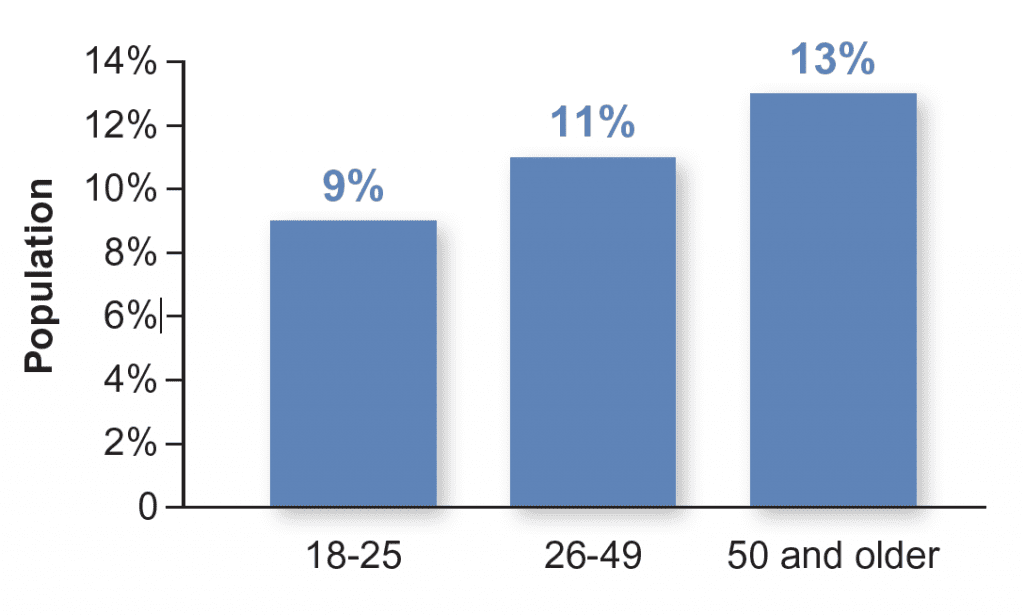Evidence-based Clinical Guidelines for Prescribing Benzodiazepines
Published Materials
Benzodiazepines are powerful medications that can be effective in the management of anxiety and insomnia. However, their benefit is time-limited and benzodiazepine use should be discontinued after 4-6 weeks. Yet many older adults are prescribed long-term benzodiazepines.
Older adults use benzodiazepines more than younger adults1
In long-term use for these conditions, the risks usually outweigh the benefits.
Common adverse effects of benzodiazepines
- drowsiness, lethargy, fatigue
- excessive sedation
- disturbances of concentration or attention
- falls
Serious risks from benzodiazepines
- withdrawal, addiction, abuse, and dependence
- falls and hip fracture
- cognitive impairment
- motor vehicle accidents
- mortality
Reducing benzodiazepines
Taper slowly to help patients stop long-term benzodiazepine use. Abrupt withdrawal can result in delirium, psychosis, or hallucinations.
Develop an individualized taper2 Discuss the risks and benefits of benzodiazepines with patients and engage them in the plan to taper. Use a slow reduction (e.g., 25% every 2 weeks) and monitor for symptoms of withdrawal. Providing alternate recommendations to address symptoms of insomnia (e.g., cognitive behavioral therapy) or anxiety (e.g., selective serotonin reuptake inhibitor) can help with rebound symptoms.
Successful tapering is possible
More than 65% of benzodiazepine users are able to discontinue use.2,3
Resources for Providers
Resources for Patients
Information current at time of publication, August 2021.
The content of this website is educational in nature and includes general recommendations only; specific clinical decisions should only be made by a treating clinician based on the individual patient’s clinical condition.
References
- Substance Abuse and Mental Health Services Administration. 2019 National Survey of Drug Use and Health (NSDUH) Releases. samhsa.gov/data/release/2019-national-survey-drug-use-and-health-nsduh-releases. Accessed December 15, 2020.
- Pottie K, Thompson W, Davies S, et al. Deprescribing benzodiazepine receptor agonists: Evidence-based clinical practice guideline. Can Fam Physician. 2018;64(5):339-351.
- Reeve E, Ong M, Wu A, Jansen J, Petrovic M, Gnjidic D. A systematic review of interventions to deprescribe benzodiazepines and other hypnotics among older people. Eur J Clin Pharmacol. 2017;73(8):927-935.
